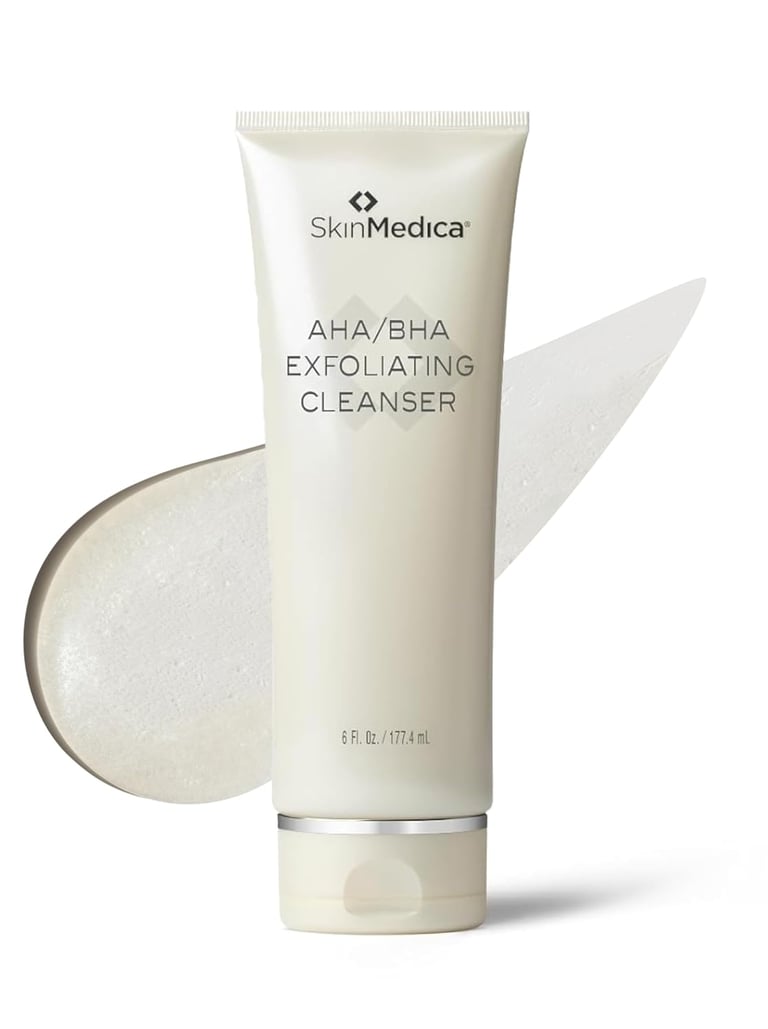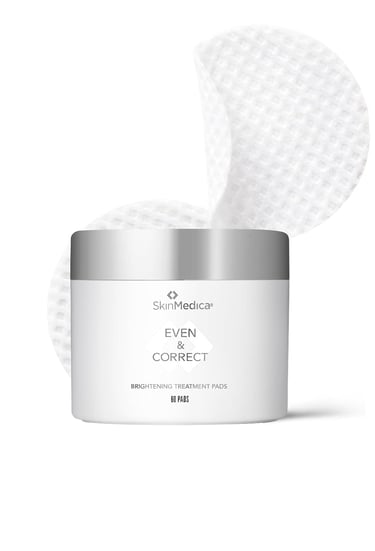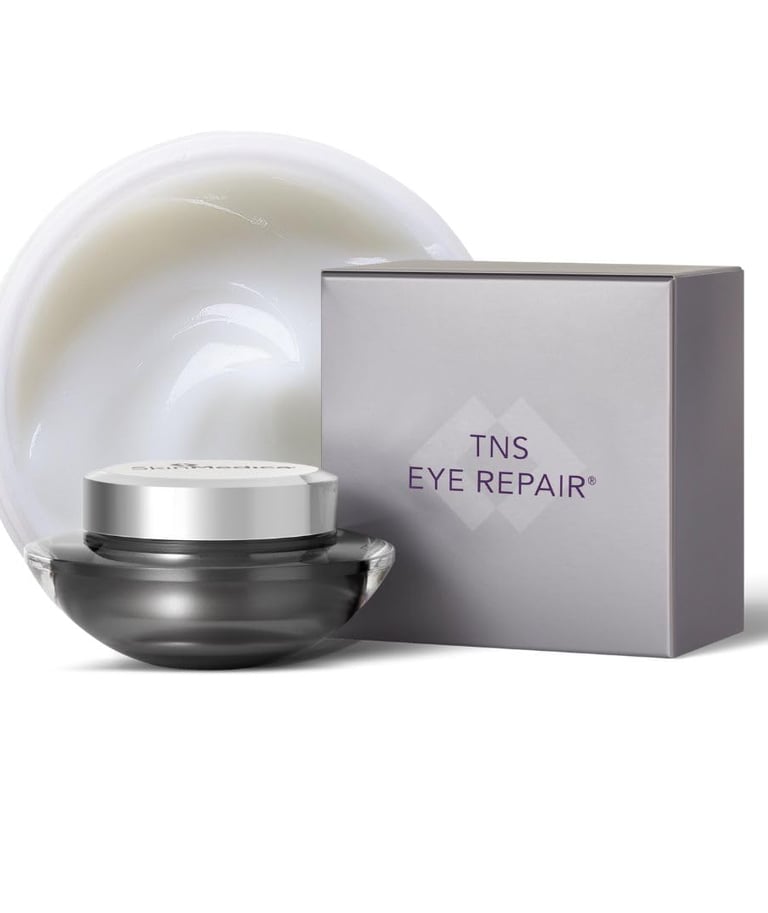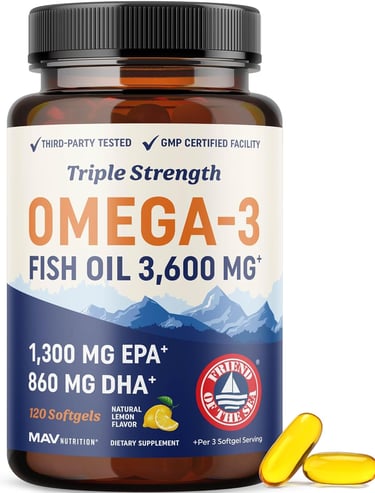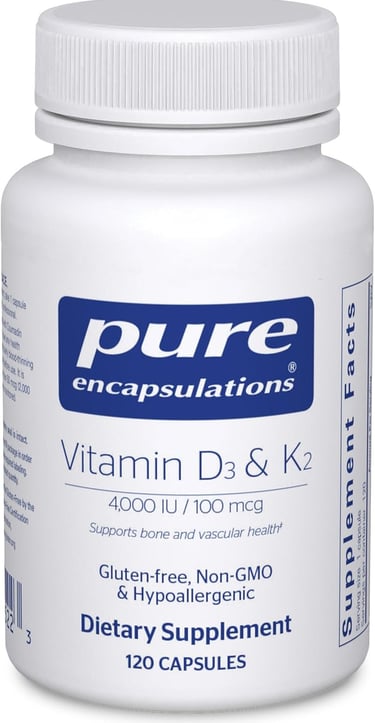
Curated Wellness for Your New Chapter


Information that empowers you
Learn the difference between Perimenopause and Menopause.


Support
Find products tailored for menopause.

Embrace Your Journey Through Menopause
Hormone Therapy: Separating Facts from Myths
For decades, hormone therapy has been one of the most misunderstood treatments in women's health. If you're navigating perimenopause or menopause, you've likely heard conflicting information that's left you confused—or even scared. Let's clear up the confusion with science-backed facts.
The Big Myth That Changed Everything
MYTH: Hormone therapy causes breast cancer and is dangerous for all women.
FACT: This widespread fear stems from a 2002 study that was misinterpreted and later corrected. The truth is more nuanced.
The Women's Health Initiative (WHI) study was halted in 2002 when researchers initially concluded that hormone replacement therapy (HRT) increased health risks. This sent shockwaves through the medical community, and millions of women were suddenly denied treatment.
Here's what we know now: Subsequent research has shown that for most women under 60 or within 10 years of menopause, hormone therapy is not only safe but can be highly beneficial. The risks depend on factors like:
Your age when starting treatment
Time since menopause began
Type of hormones used
How they're delivered (pill, patch, cream)
Your personal health history
Common Myths Debunked
Myth #1: "Hormone therapy is only for hot flashes."
FACT: While HRT is incredibly effective for hot flashes and night sweats, it also helps with:
Brain fog and memory issues
Mood swings and anxiety
Sleep disruptions
Vaginal dryness and painful sex
Bone density loss
Joint pain
Energy levels
Estrogen is involved in over 400 functions in your body—it's about far more than temperature control.
Myth #2: "Natural remedies are safer than hormone therapy."
FACT: "Natural" doesn't automatically mean safe or effective. Many supplements lack rigorous testing, and their quality varies widely. Meanwhile, bioidentical hormones prescribed by healthcare providers are FDA-regulated, standardized, and closely monitored.
Black cohosh, evening primrose oil, and other popular supplements may help some women, but they don't have the comprehensive benefits—or quality control—of prescription hormone therapy.
Myth #3: "If I start hormone therapy, I'll be on it forever."
FACT: Treatment duration is personalized. Many women use HRT for 3-5 years during the most symptomatic phase, then taper off. Others choose to continue longer-term because the benefits to their quality of life, bone health, and cardiovascular health outweigh the minimal risks.
There's no arbitrary cutoff age. The key is having informed discussions with a menopause-trained healthcare provider.
Myth #4: "Hormone therapy will make me gain weight."
FACT: Menopause itself often causes weight gain due to metabolic changes—not the hormone therapy. In fact, some research suggests that estrogen therapy may help prevent the belly fat accumulation that typically occurs during menopause.
Myth #5: "All hormone therapies are the same."
FACT: There are multiple types and delivery methods:
Systemic HRT (pills, patches, gels) for whole-body symptoms
Local estrogen (creams, tablets, rings) for vaginal symptoms only
Bioidentical vs. synthetic hormones
Estrogen-only vs. combined therapy (estrogen + progesterone)
Your treatment should be customized to your symptoms, health history, and preferences.
Who Should Avoid Hormone Therapy?
While HRT is safe for most women, it's not recommended if you have:
A history of breast cancer, ovarian cancer, or endometrial cancer
Blood clotting disorders or history of stroke
Active liver disease
Unexplained vaginal bleeding
Known or suspected pregnancy
The Bottom Line
Hormone therapy is a safe, effective option for managing menopausal symptoms for the majority of women—especially when started during the "window of opportunity" (before age 60 or within 10 years of menopause).
You deserve accurate information, not fear-based myths from outdated research.
If you're struggling with menopausal symptoms, don't suffer in silence. Talk to a healthcare provider who specializes in menopause care. Organizations like The Menopause Society (formerly NAMS) can help you find certified practitioners in your area.
Your symptoms are real. Your concerns are valid. And effective treatment is available.
Have questions about hormone therapy or menopause? Drop them in the comments below. And if this article cleared up some confusion for you, share it with a friend who might need this information too.
Disclaimer: This article is for informational purposes only and does not constitute medical advice. Always consult with a qualified healthcare provider before starting any new treatment.
IMPORTANT UPDATE
In November 2025, the U.S. Food and Drug Administration (FDA) removed the longstanding “black-box” warning from over 20 hormone-based therapies used for menopausal symptom treatment. This change reflects emerging evidence that the risks associated with HRT vary significantly based on the user’s age and the timing of therapy initiation—particularly when started within ten years of menopause or before age 60. The update paves the way for more nuanced, individualized care for menopausal women, allowing healthcare providers greater flexibility in treatment decisions.
SOURCE:
U.S. Food & Drug Administration (FDA) Press Release — HHS Advances Women’s Health, Removes Misleading FDA Warnings on Hormone Replacement Therapy. U.S. Food and Drug Administration
Why this matters
Improved access to care: Women experiencing menopausal symptoms may now have more confident conversations about HRT without being deterred by outdated warnings.
Better symptom relief: HRT is among the most effective treatments for classic menopausal complaints — removing the barrier may help more women regain quality of life.
Shifting narrative on women’s health: The policy correction signals a move toward evidence-based, gender-sensitive medicine, acknowledging past over-generalisation of risk.
Still not risk-free: The policy change doesn’t mean HRT is without risks — it means those risks must be balanced appropriately for the individual. Regular screening and tailored discussions remain essential.
Bottom line
The FDA’s label revision isn’t just regulatory—it’s cultural. For midlife women, this shift may lead to earlier, more tailored treatment options, fewer fear-based barriers and a more open dialogue with providers about menopause care. As always, any decision about HRT should be made in consultation with a qualified healthcare professional.
Common Skin Changes During Menopause
Dryness and Itching – Reduced estrogen levels decrease skin hydration and oil production, leading to dryness and irritation.
Loss of Elasticity – Collagen and elastin decline, making skin thinner and less firm.
Wrinkles and Fine Lines – Estrogen supports collagen; when it drops, wrinkles become more noticeable.
Increased Sensitivity – Skin can react more easily to products or environmental changes.
Acne or Breakouts – Hormonal fluctuations may trigger adult acne, especially around the chin or jawline.
Slower Healing – Decreased cell turnover means cuts and blemishes take longer to heal.
Hyperpigmentation – Age spots or uneven tone become more visible due to hormonal changes and sun exposure.
Redness or Rosacea – Some women experience flare-ups or new sensitivity to heat and stress.
Itchy Scalp and Body – Dryness can affect the entire body, not just the face.
Thinning Skin – Over time, the dermal layer becomes more fragile and translucent.
You didn’t come this far to stop


Metabolic Changes During Menopause: What’s Really Going On?
When women transition into perimenopause and menopause, the drop in estrogen triggers significant metabolic shifts — not just aging. Studies show this hormonal decline contributes to central fat accumulation, lipid dysregulation (higher LDL, lower HDL), and decreased insulin sensitivity — all of which raise risk for metabolic syndrome, type 2 diabetes and cardiovascular disease. PMC+2PMC+2
For instance, post-menopausal women showed higher post-meal glucose and insulin responses, and increased visceral (abdominal) fat — even when total body weight remained unchanged. PMC+1
Rather than blaming “slow metabolism,” research suggests the real issue is loss of muscle mass + increased visceral fat + hormonal changes. Mayo Clinic+1
Practical Solutions You Can Start Now
1. Strength Training + Lean Protein
Maintaining and building muscle helps offset the drop in resting metabolic rate. Incorporate resistance exercises (2-3 times a week) and prioritize ~1.0-1.2g protein/kg body weight. For example:
2. Mediterranean-Style Diet with Healthy Fats
A diet rich in vegetables, legumes, fish/omega-3s, and olive oil supports lipid metabolism and reduces inflammation. EatingWell
3. Key Nutrients: Magnesium + Vitamin D3/K2
Magnesium supports glucose regulation and muscle function; vitamin D3/K2 supports bone and vascular health — both are vital in midlife.
4. Move More, Sit Less
Beyond formal workouts, increasing non-exercise activity (walking, standing, light errands) helps reduce fat accumulation and improve metabolic health. PMC
5. Prioritize Sleep & Stress Management
Poor sleep and high stress heighten cortisol, which can worsen insulin resistance and central fat gain. Explore mindfulness, consistent sleep schedules, and winding down early. PMC
🩺 Subjects to Discuss With Your Healthcare Provider
Lipid & glucose panel changes: Ask for fasting/2-hour post-meal glucose, HbA1c, and full lipid profile (LDL-particle size, triglycerides).
Hormone therapy (HT/MHT): Whether you’re a candidate and how timing and health history affect this decision.
Bone density test: Check bone mineral density (BMD) given the interplay of metabolism and skeletal health.
Thyroid & adrenal health: Changes in metabolism may mask thyroid/adrenal issues.
Vitamin D and magnesium levels: Ensure your labs are optimal for midlife metabolic health.
Disclosure: Some links above may be affiliate links — as an Amazon Associate, Giravida may earn from qualifying purchases at no extra cost to you. This content is educational and not medical advice; please consult your healthcare provider.
Subscribe Now
Stay updated on menopause resources
We're here to help!

